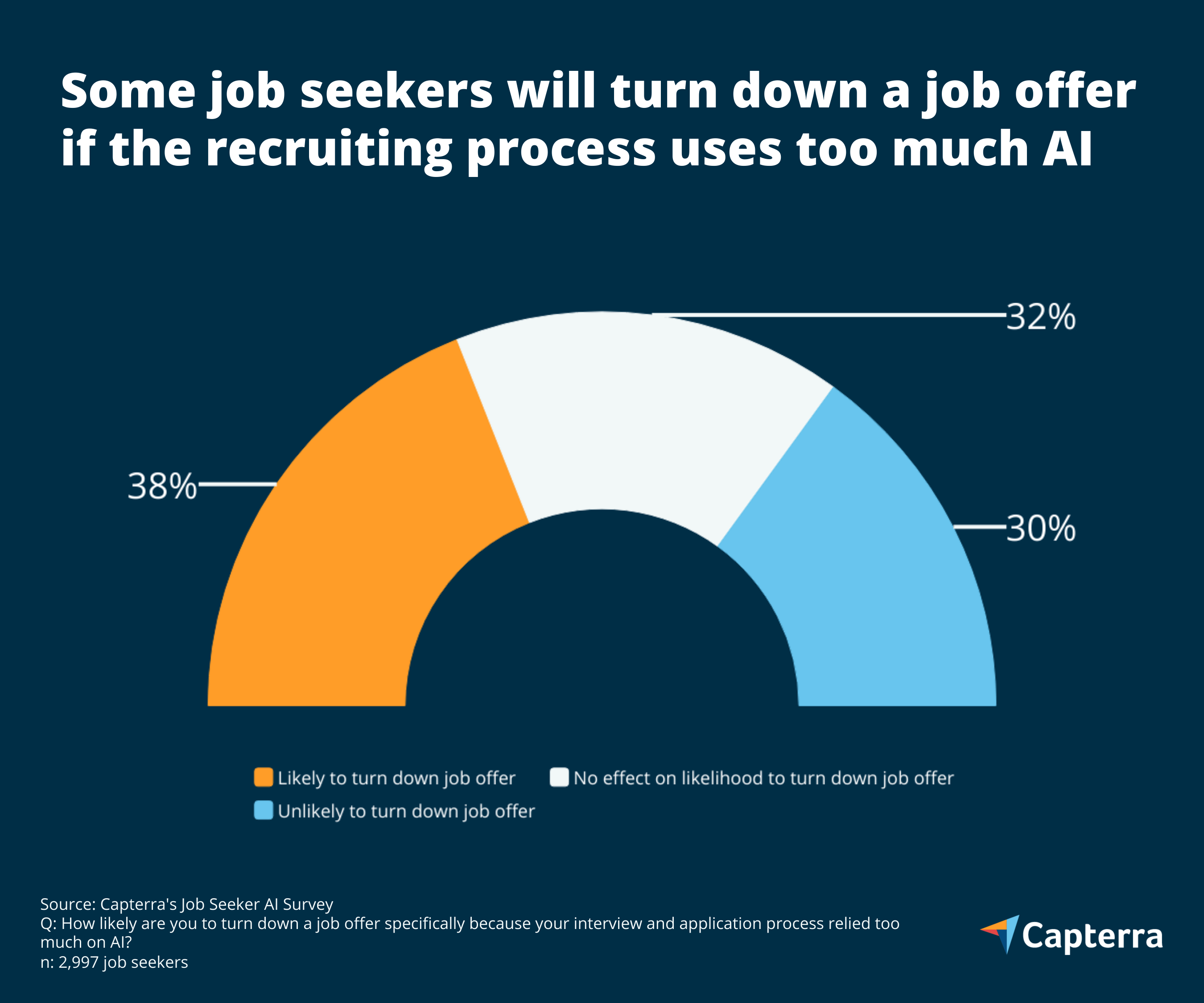
A third of candidates would reject a job offer from a hiring process that used too much AI

Employers' increasing reliance on artificial intelligence (AI) in recruitment may risk alienating top talent, according to a new survey by Capterra.
The 2024 Job Seeker AI Survey reveals that while candidates appreciate the efficiency and fairness AI brings to hiring, too much reliance on automation can deter qualified candidates from accepting job offers.
While 62% of job seekers believe their chances of being hired increase when AI is used in recruitment, the survey shows that over-reliance on AI can backfire. According to Capterra's findings, 38% of candidates would reject job offers from companies that heavily depend on AI throughout the hiring process.
Another 60% of job seekers also prefer to apply to jobs where there is an opportunity for human interaction at any stage of the hiring process.
"While the benefits of AI are too big to ignore at this point, companies still need to think about how they implement AI in their recruiting workflow," says Brian Westfall, principal HR analyst at Capterra, in a statement. "If they do too much too fast, they risk alienating top talent and causing permanent harm to their employer brand."

The survey also highlights a generational divide in attitudes toward AI in recruitment, with 70% of younger candidates comfortable with AI in recruitment, while only 53% of older job seekers feel the same.
Education also plays a significant role in how candidates view AI. Individuals with higher education, such as a master's degree, are more open to AI's involvement in recruitment processes (73%), compared to those without any college education (57%).
However, this openness does not mean they are willing to forgo human interaction altogether.
"Surprisingly, job seekers most familiar with AI are the ones most likely to walk away from AI-heavy recruiting processes," the report read. "Familiarity with AI and college education leads to lower tolerance when it's poorly implemented or overly relied upon."